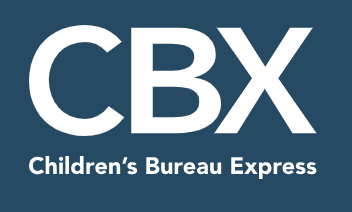Children's Bureau Express March 2024 Edition
March 2024
View the March Issue
Spotlight on Diversity and Racial Equity in Child Welfare
This issue of CBX spotlights resources centered on diversity and racial equity in child welfare. Read a message from Associate Commissioner Aysha E. Schomburg about the Children's Bureau's 2024 Race Equity Challenge, an opportunity for us to journey together towards transformative systemic change rooted in equity. This issue also includes the latest resources and tools for child welfare professionals and the families they serve.Finding Our Way, A Message From the Associate Commissioner
In the fabric of the child welfare system, lies a tapestry of racial injustice and inequity. It's a thread that has plagued generations and marked the system with an extensive history of disparate outcomes for Black, Hispanic, and Indigenous children and families. Within this story there lies a struggle, maybe the better word is a journey--a journey towards racial equity that is both exhausting and transformative. One marked by the structural challenge that the system is truly functioning as it was intended yet illuminated by the determination and resilience of individuals like you and me who consistently seek and work arduously for change.
Read more »
Americans' Views of U.S. Foster Care: Elevating Black Americans' Perspectives and Experiences
A The EMBRACE Project (Expanding Meaningful Black Relationships and Creating Equity) is a multiyear, research-driven initiative that aims to not only understand but enhance the long-term health and success of Black youth in foster care. Gallup and Kidsave, an organization dedicated to establishing mentoring connections and adoptive families for older children, collaborated as part of the EMBRACE Project to conduct a study on how the American public, with a specific focus on Black Americans, perceives the foster care system and adoption from foster care. This study, Americans' Views of U.S. Foster Care: Elevating Black Americans' Perspectives and Experiences, aims to identify and understand the barriers to mentoring, fostering, and adopting, particularly for Black potential caregivers.
Read more »
The Health and Well-Being of American Indian and Alaska Native Children: A History of Inequity and a Path Forward
The Annie E. Casey Foundation published a blog post that examines the health and well-being of American Indian and Alaska Native (AI/AN) children and youth. AI/AN children, youth, and families have disproportionally poor experiences in health and well-being compared to the general population due to the legacy of historical trauma and discriminatory policies. This post separates equity challenges for this demographic into four categories: economic, education, health and mental health, and family and community. By examining relevant data, the post aims to foster a deeper understanding of the challenges these individuals encounter and identify potential areas for focused interventions and improvements.
Read more »
Toolkit for Applying Racial Equity and Sustainability Practices in Family Stabilization Efforts
Chapin Hall at the University of Chicago, in collaboration with Lutheran Services of America, launched the Family Stabilization Initiative and developed a sustainability toolkit. Advancing Equitable Outcomes in Child Welfare: A Toolkit for Sustainability is a practical resource for organizations seeking to integrate racial equity and sustainability principles into their implementation of evidence-based or evidence-informed programs. This toolkit is specifically designed for decision-making staff within human service organizations.
Read more »
Children's Bureau Announces the Center for Workforce Equity and Leadership
Families Rising was awarded $25 million by the U.S. Department of Health and Human Services through the to lead the Center for Workforce Equity and Leadership (CWEL). The center will be the place for equity in the child welfare workforce.
Read more »
